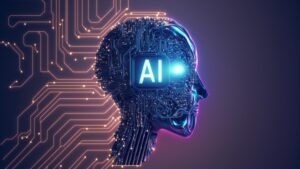Exploring the Evolution of Artificial Intelligence: Tracing the Transformation and Future Prospects
Introduction
The rise of artificial intelligence (AI) in the twenty-first century marks a pivotal milestone in technological advancement. It is changing the way we live, work, and interact in remarkable ways. This article delves into the past, present, and future of AI, tracing its transformation and exploring the exciting prospects that lie ahead.
The Dawn of Artificial Intelligence
Artificial intelligence was conceived as a scientific discipline in the mid-20th century. The term “Artificial Intelligence” was officially coined at the Dartmouth conference in 1956, but the concept had been brewing for decades, with the works of mathematicians such as George Boole and Alan Turing laying the groundwork.
Early Developments and Challenges
The enthusiasm for AI in its early years was met with several challenges. Progress was slow due to limited hardware capabilities and a lack of understanding of the profound complexity of human intelligence. The AI winter periods in the 1970s and 80s were characterized by reduced funding and interest in AI research.
AI’s Resurgence
By the late 1990s, with improved computational power and data availability, AI began to make a comeback. The development of machine learning, a subset of AI that involves the development of algorithms that improve through experience, fuelled this resurgence. Today, machine learning, alongside its extension, deep learning, is a dominant force behind modern AI applications.
Artificial Intelligence Today
From voice-controlled personal assistants such as Siri and Alexa, to autonomous vehicles, recommendation systems, and facial recognition, AI has firmly ingrained itself into our daily lives. It’s also making significant strides in areas such as healthcare, finance, and climate science, providing solutions to some of the most pressing issues of our times.
| AI Application | Real World Example |
|---|---|
| Personal Assistants | Siri, Alexa |
| Autonomous Vehicles | Tesla’s self-driving cars |
| Recommendation Systems | Netflix’s movie suggestions |
| Healthcare | Google’s DeepMind predicting eye diseases |
The Future of Artificial Intelligence
The future of AI is fraught with both exciting possibilities and critical challenges. Areas such as AI ethics and the implications of superintelligent AI require thoughtful consideration. However, the potential benefits to society, from personalized medicine to mitigating climate change, make the journey worth it.
Conclusion
The evolution of AI has been a journey of remarkable progress, resilience, and transformation. As we stand on the brink of a new era coloured by AI, it’s essential to navigate this landscape with a sense of curiosity, responsibility, and informed optimism. The future is not set in stone; it’s ours to shape.





